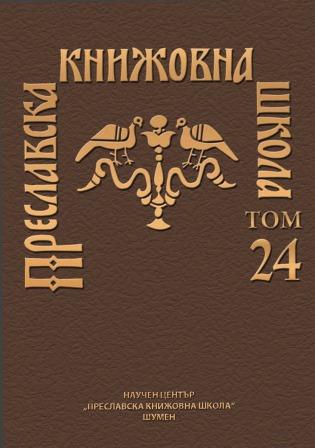ИЧИРГУБОИЛА И „ХРАНЕНИ ХОРА НА ВЛАДЕТЕЛЯ” – ОСТАТЪЦИ ОТ ВОЕННО-МОБИЛИЗАЦИОННАТА СИСТЕМА НА ЕЗИЧЕСКА БЪЛГАРИЯ
ICHIRGU-BOILA AND "FED PEOPLE OF THE RULER" - REMNANTS OF THE MILITARY-RECRUITMENT SYSTEM OF PAGAN BULGARIA
Author(s): Mariana MinkovaSubject(s): History, Language and Literature Studies, Middle Ages, Philology
Published by: Шуменски университет »Епископ Константин Преславски«
Keywords: ichirgu-boila; chakir; First Bulgarian kingdom; Proto-Bulgarian
Summary/Abstract: From the pagan period of the First Bulgarian kingdom on the Danube, the terms ichirgu-boila and fed people of the ruler are known, the etymology of which has not been definitively clarified. In the present report, these terms are considered as traits of the system for recruitment of professional cavalry army in pagan Bulgaria. It is assumed that this system coincided to a large extent with the similar systems known in Byzantium, the state of the Franks, Persia, Sogdiana. Thus, for example, the composite title ichirgu-boila can be translated as a military leader (boila) of horse-riders (chirgs, chakirs), where chirg (chakir) is a homonym of the pan-Iranian (Persian, Sogdian) term chakir, chākar "professional, light-armed horseman associated to the local landowner”. The local landowners themselves (boilas, later bolyars) used arable land granted to them by the ruler and were known as "fed people of the ruler", probably kǝrmilniks (compare the recent Indo-Iranian term korma "dish", a derivative of the Indo-saka hwar „to eat, feed on”). Moreover, in the Old Bulgarian language there were terms farizh, farь and orь "stallion" and possibly "horseman", borrowed in Romanian, Albanian, Old Russian and Polish, which coincide with the Persian fares "stallion". Possibly, the Persian fares later produced post-Sasanian faris and Arabian fāris "heavily-armed horseman", who, in exchange for the right to cultivate land, prepared chakirs for the army of the ruler. Therefore, linguistically, the terminology of the military recruitment system in the First Bulgarian kingdom appears with Proto-Bulgarian origin and has common elements with that of the contemporary Iranian states.
Journal: Преславска книжовна школа
- Issue Year: 2024
- Issue No: 24
- Page Range: 13-31
- Page Count: 19
- Language: Bulgarian

